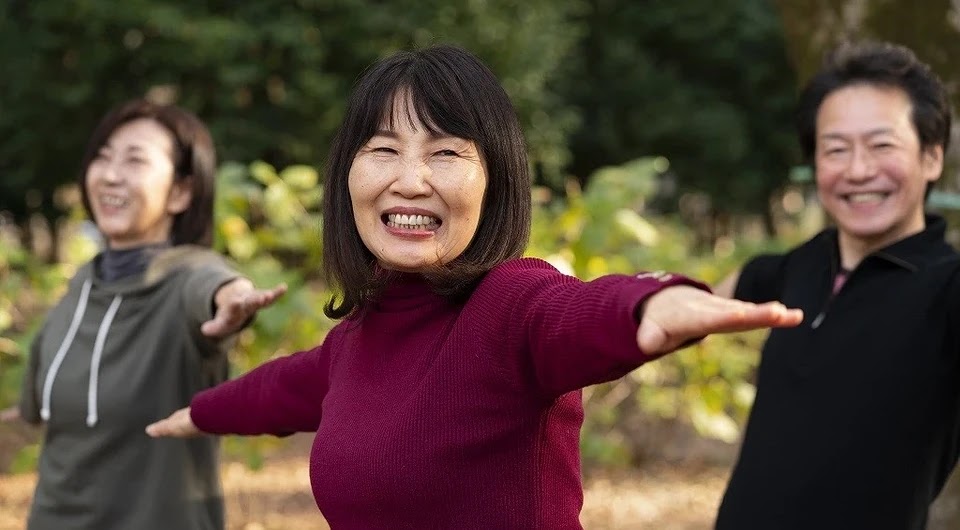Simple, but terribly useful approaches to life, which the sooner you introduce into the habit, the better.
The average life expectancy for women in Japan is 87 years, for men it is 81 years. In 2021, the country crossed the bar of 80,000 centenarians — that is, people who are over 100 years old. Such indicators brought Japan to the second place among the countries where people live longer than in other parts of the world. The first place belongs to Hong Kong, where the average age of centenarians is 84.1 years, the third is in Switzerland (83.5 years).
Moreover, in the 40s after the war, the life expectancy of the Japanese did not exceed 56 years. This fact says that the phenomenon is not affected by the genetic predisposition of the nation, since too little time has passed for the formation of some kind of genetic material that allows you to live longer. This will take at least a few thousand years.
What is the secret of Japanese longevity? What are the rules to follow in order to prolong your life until the 80th anniversary and not go crazy at the same time? We analyzed the habits of Japanese centenarians and identified four common ones among them.
1. Food: eating habits and information education
The diet of most Japanese consists of seafood and red fish. Also, most dishes consist of rice, seaweed, vegetables and fermented soybeans. In general, sour food is in high demand in Japan as it improves digestion.
Fried and floury foods are practically not eaten. Basically everything is steamed. Also, heavy meat - beef and pork - are rarely found in the diet. In addition, centenarians eat little or no chocolate bars and candies. If they add sugar to drinks, it is mostly cane. Another point - the Japanese do not overeat. Their portions are very different, for example, from American and European standards. Here they adhere to the rule that you need to get up from the table a little hungry. It is more comfortable for them to have a bite to eat again than to fill their stomach to capacity at a time.
The state plays an important role in the health of the Japanese. For example, for 30 years, stomach cancer and cardiovascular disease have been the leading causes of death in Japan. After long analyzes, it turned out that the main causes of these diseases are very hot, as well as salty foods. To protect the population, in 1995 Japan launched an information campaign - on TV, radio and through other media they talked about the dangers of such food. As a result, by 2013, the death rate from cancer and heart attack decreased by 22%.
Even in Japan, there is a separate niche for the production of food for the elderly. Such food has more gelling components, so it is easier to chew. It also contains a lot of collagen , a substance that improves the elasticity of joints and ligaments.
2. Movement and communication are life
Japanese centenarians deny inertia. They try to perform daily, albeit a simple, but complex of physical exercises. Also here you can often see how elderly people gather on the street - they play chess, practice wushu (there is a separate direction for pensioners) or just discuss something. Moreover, in Japan, at the national level, sports minutes are provided in the middle of the day - so that the Japanese, known for their workaholism, can warm up.
By the way, in Japan, as in China, only elderly people, couples with children or animals can afford long aimless walks in the park. Other categories of residents rarely choose such a pastime - after work or study, they meet in bars or restaurants. Therefore, young people from these countries are surprised when in Russia, for example, friends can meet not in a cafe, but on the street, so that after two hours they can walk around the city.
But back to long-livers. After 65, the official retirement age, older Japanese do not stop being active. Many, even if it is not necessary, continue to work. So they feel needed and even get sick less.Those who nevertheless decided to take the maximum from a well-deserved pension try to fill their lives with impressions - they sign up for interest clubs, find hobbies, travel to the best of their ability.
By the way, local doctors do not prescribe medicines for a bit. Here in medicine they often adhere to the principle of non-intervention, that is, before a prescription with pills, the doctor will first advise “smoke less”, “move more” and conduct preventive checks more often in order to be able to work ahead of the curve.
3. Daily regime
The long-livers of Okinawa have repeatedly noted that they adhere to a clear daily routine - they go to bed before 11 pm, wake up at 5-6 am. According to them, it helps them enjoy the fullness of life - being alone with their thoughts in the early morning, getting more done during the day, and making time for their favorite hobby in the evening.
Officially, there is no evidence of the benefit of early rises. The main criterion for good health, somnologists say, is getting enough sleep. How much time it takes is an individual norm. For example, 5-6 hours will be enough for someone, while 8 will not be enough for others.
Therefore, if you adapt this rule of Japanese centenarians to your realities, then you need to create a daily routine that is most convenient for you, in which you will definitely get enough sleep, have time to do urgent things and do not forget about the sweet joys of life - hobbies, walks, leisurely lunches and breakfasts, reflections on the eternal (this is also important).


0 Comments